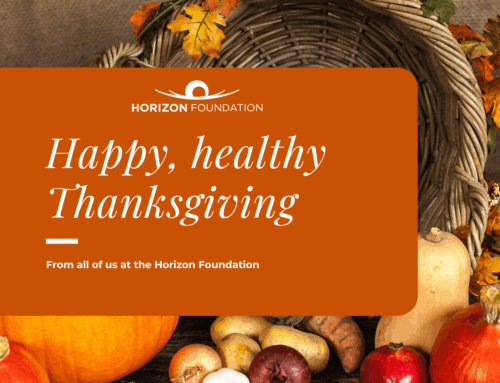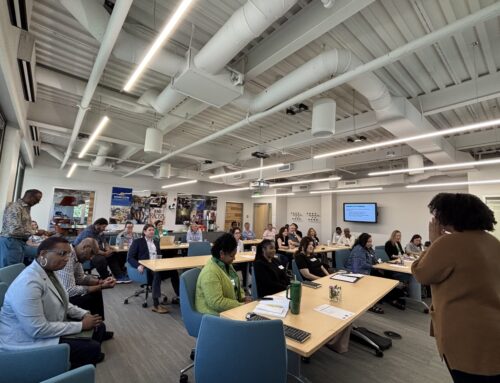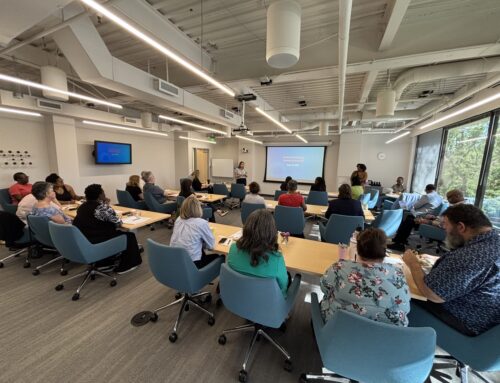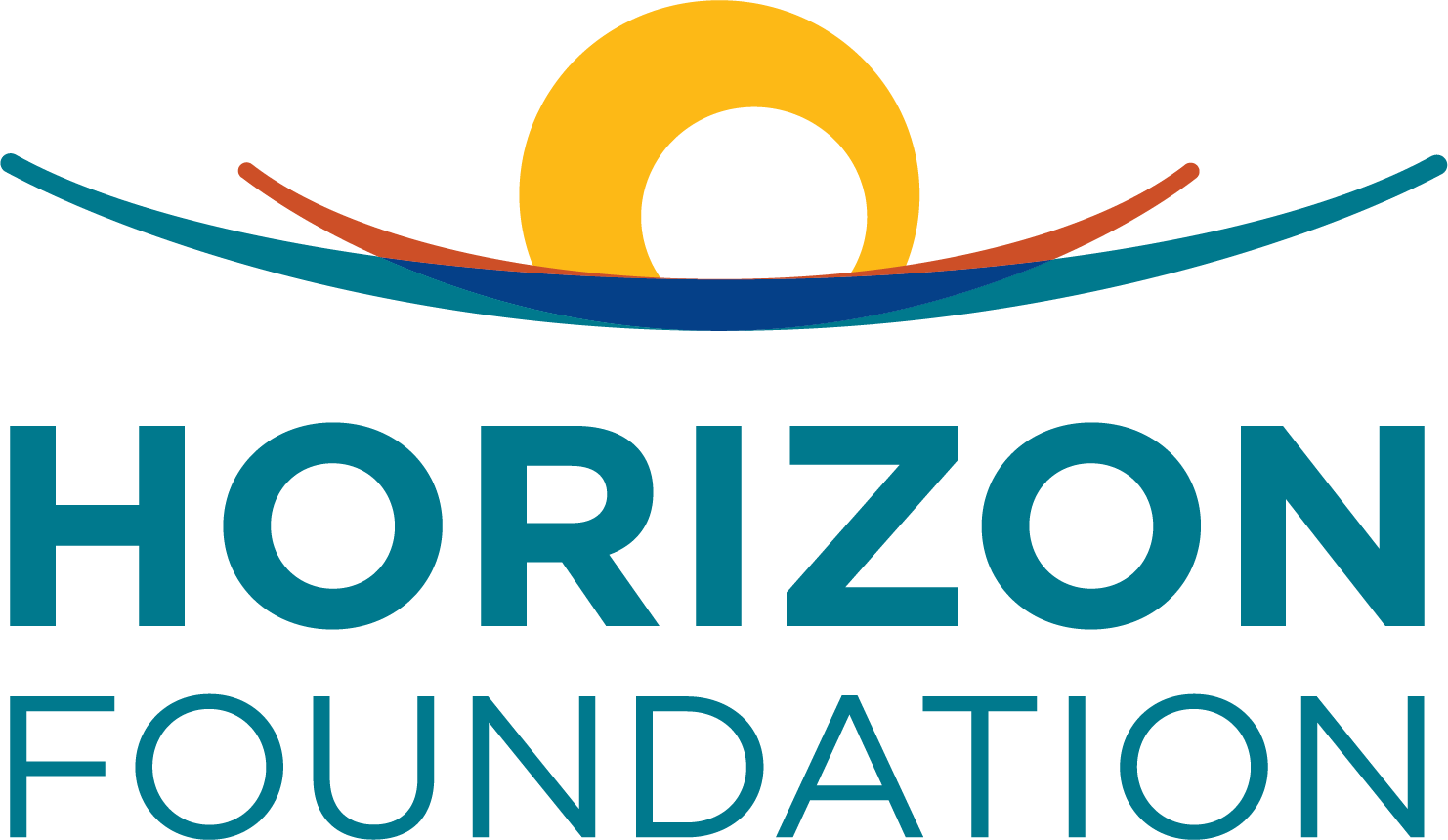The Horizon Foundation’s new strategic plan that launched earlier this year brought a lot of change. For the first time in 25 years, the Foundation updated its mission, vision and values to represent a bold new direction. We committed to exploring areas of focus that were brand new to us, such housing and wealth building, because our community told us there were systemic barriers in these areas that prevented residents from living abundant and healthy lives. And we knew that in order to build trust with our community, we needed to evolve our grantmaking strategy to challenge traditional funder-grantee power dynamics and try and build new, productive partnerships with folks on the ground who may not know us well.
One of the ways the Foundation is working to do this is piloting a process we call “hello” grants – small, short-term grants focused on meeting and engaging with new partners who are interested in exploring how we might work together on health equity issues. Though the Foundation is pursuing more multi-year grants in our main RFP process, we knew relationship building was a critical first step in building new partnerships and that organizations who dedicate the time to do so should be compensated for it.
Below, we profile two of our first hello grantees who are beginning this relationship-building process with us: Stillborn and Infant Loss Support (SAILS) and the Community Development Network of Maryland. Over the next several weeks, we will get to know more about each other and how we might be able to work together to achieve a joint vision of social change. We will report back later this year about how these grantees experienced this new process and what we learned from it.
Sadija A. Smiley, Stillborn and Infant Loss Support (SAILS)
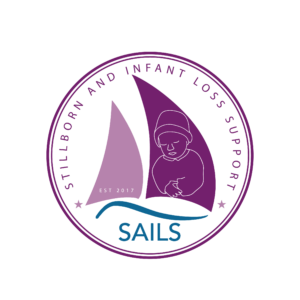 Sadija A. Smiley unfortunately knows too well the pain that no parent ever wants to face. In 2003, she lost her daughter to stillbirth at 36 weeks.
Sadija A. Smiley unfortunately knows too well the pain that no parent ever wants to face. In 2003, she lost her daughter to stillbirth at 36 weeks.
“The experience is life-altering,” said Smiley. “It was my first pregnancy and my first introduction to death. It left me feeling alone and isolated. Support and resources were very limited. No one wanted to talk about this topic.”
But out of pain, Smiley ultimately found purpose. In 2017, she founded Stillborn and Infant Loss Support (SAILS), a Laurel-based nonprofit serving residents in Howard, Anne Arundel, Montgomery and Prince George’s Counties that works to improve the mental health and wellness of families experiencing miscarriage, stillbirth and other pregnancy losses. In doing so, she created the support system she needed but didn’t have at the time she experienced the loss of her daughter.
“I wanted to make sure I honor my baby girl, Ivyanna, and keep her memory alive,” said Smiley. “I wanted to channel my pain and transform it and help other people by making sure they know there is life after loss. You can carry this grief and work through it with support.”
SAILS offers support to families dealing with pregnancy losses through community building, support groups, education and mentorship. In engaging with the Horizon Foundation, Smiley is eager to connect with other community-based providers and clinicians and build relationships to strengthen collective efforts around maternal mental health.
“I want to have a seat at the table and contribute to the conversation,” said Smiley. “I want to learn about and help identify innovative approaches to advocacy to improve maternal mental health outcomes and see where SAILS, as a small organization, can fit in and support.”
Smiley hopes to continue to expand SAILS’ reach and offer more mental health resources in the future, especially in underserved communities where rates of pregnancy loss are higher. Overall, Smiley wants the broader community to get involved and support their neighbors.
“Our vision is a world where no family grieves alone,” said Smiley. “All families experiencing this loss should be met with compassion, not shame.”
Claudia Wilson Randall, Community Development Network of Maryland (CDN)
![]()
For Claudia Wilson Randall, working as the executive director of the Community Development Network of Maryland brings a career dedicated to improving communities full circle. With a background in public policy and having worked on neighborhood revitalization during the foreclosure crisis, Randall sees her role as a conduit for building more opportunities for communities of all types.
“I always ask myself, ‘How do I build more opportunity? How do we make a better state, better neighborhoods? How are we contributing to better communities?’” said Randall. “That’s my ‘why’ for doing this work.”
The Community Development Network of Maryland works to be the voice for the community development industry, which includes nonprofit organizations, public agencies, developers, financial institutions, small business development organizations and more. In particular, Randall sees CDN’s work on housing as especially critical in building opportunities for people who haven’t always had a chance at them.
“Housing policy is the bedrock of discrimination in this country,” said Randall. “When you look at housing in terms of access to schools, jobs, transportation, all of that has been largely redlined in the last 100 years. How do we overcome those things and help people gain access to better opportunities?”
CDN does all of its work in partnership with others. In beginning the hello grants process with the Horizon Foundation, Randall hopes to strengthen collaborations with other sectors and tackle economic development and housing as an intersectional issue. And although the challenges to changing housing policies are great, Randall feels encouraged about the opportunity that Maryland, and specifically Howard County, has to build more equitable, thriving communities.
“Too often as a country, we can get entangled in a scarcity mindset that makes us believe we don’t have enough,” said Randall. “But we are a wealthy state in the wealthiest country in the world. Howard County, and Columbia in particular, were a model for the rest of the country. It can be a model again. We have the chance to do things other communities can only dream of.”


